A common misconception about pigs is that they can eat everything. The truth is that not every food option is safe for pigs.
Some foods should not be given to pigs at all, and there are other foods that pigs should not eat when raw. One example of this is potatoes.
Can pigs eat potatoes?
Potatoes are safe for pigs to eat if they are cooked or dried. The main energy nutrient in potatoes is carbohydrates, making them a good source of energy.
Potatoes also contain vitamins and minerals such as potassium, folate, and Vitamins C and B6.
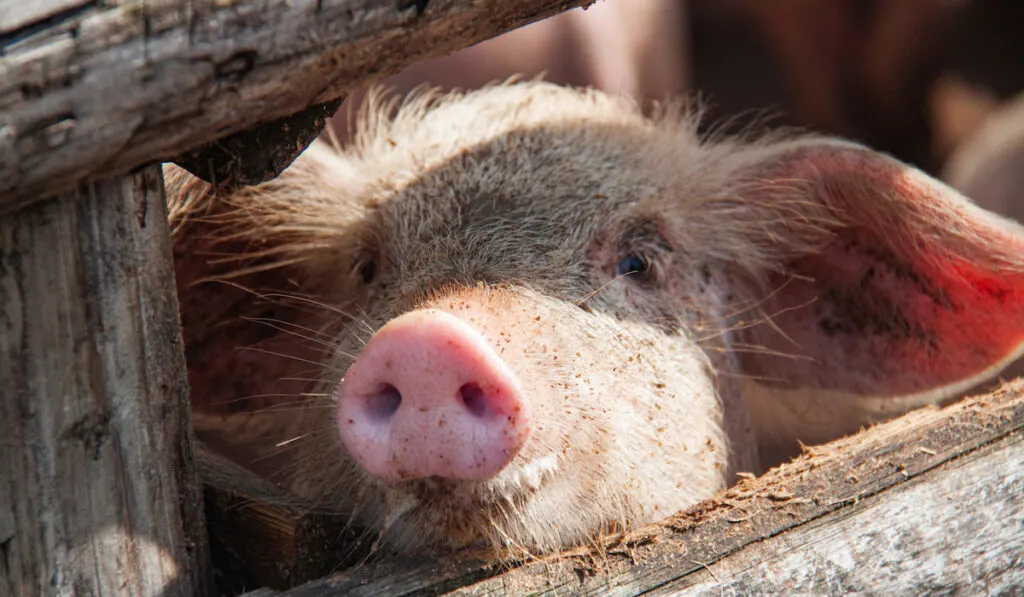
Table of Contents
When Are Potatoes Bad for Pigs?
You may be wondering why potatoes need to be either cooked or dried to feed them to your pigs, especially since giving raw potatoes would be easier and possibly cheaper.
There are some instances when potatoes are not safe for your pigs to eat.
Raw Potatoes
Raw potatoes are fed to livestock, such as cattle and sheep, since these animals are capable of digesting potatoes well.
However, potatoes are 70% starch, and pigs cannot process that much starch at once. Because of this, raw potatoes can cause stomach problems for pigs.
However, when cooked or dried, potatoes become easier to digest.
Green Potatoes
Green potatoes are dangerous for pigs. Green coloring on potatoes indicates the presence of a toxic substance called solanine.
Solanine can also be found in tomatoes and eggplants and can occur naturally in leaves, fruit, and tubers.
Keep in mind that the more a plant is exposed to sunlight, the more solanine can form.
Too much solanine intake may cause your pig intense pain as it damages the cell membranes of your pig’s intestines.
Once this happens, your pig cannot process food well. It may also hinder the production of various enzymes that are essential for your pig.
Signs that your pig may have ingested solanine are excessive salivation, sudden loss of appetite, and discontinued pregnancy.
If you notice any of these symptoms, contact your veterinarian as soon as possible.
If you think that your pigs have consumed raw or green potatoes, contact your veterinarian immediately.
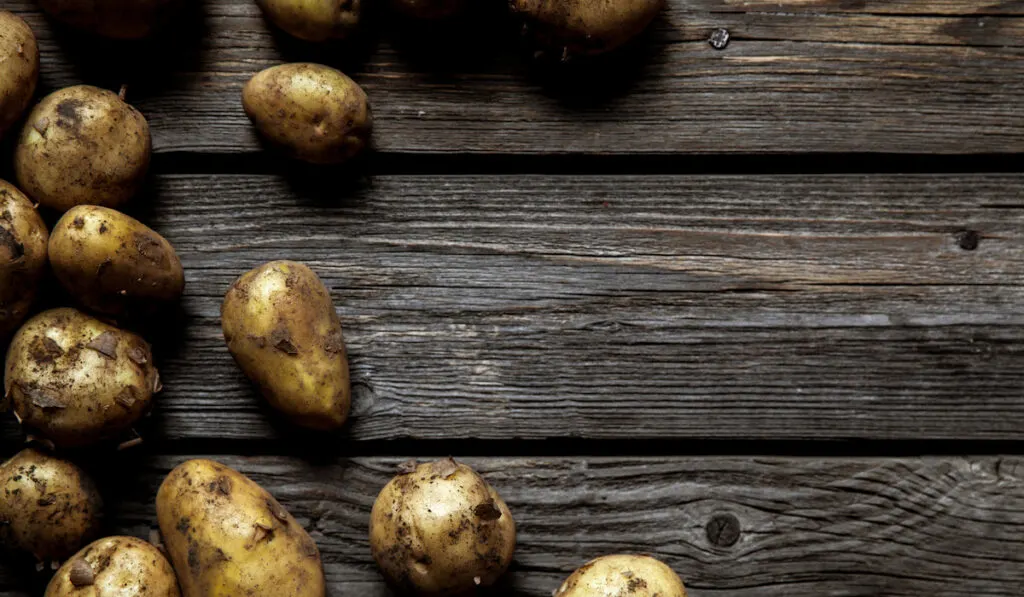
How to Properly Store Potatoes
If you want to feed potatoes to your pigs, you need to be sure to store them properly. This will help prevent the formation of solanine.
When storing potatoes, there are three things to consider: temperature, sunlight, and physical damage.
Temperature
Keep potatoes in a cool, dry place with a temperature between 43-50°F to prolong their shelf life and avoid early spoilage. You should not store them in a places where the temperature becomes too cold or hot, such as the refrigerator, countertop, or pantry.
Ideal places to store potatoes are usually a basement, garage, or shed.
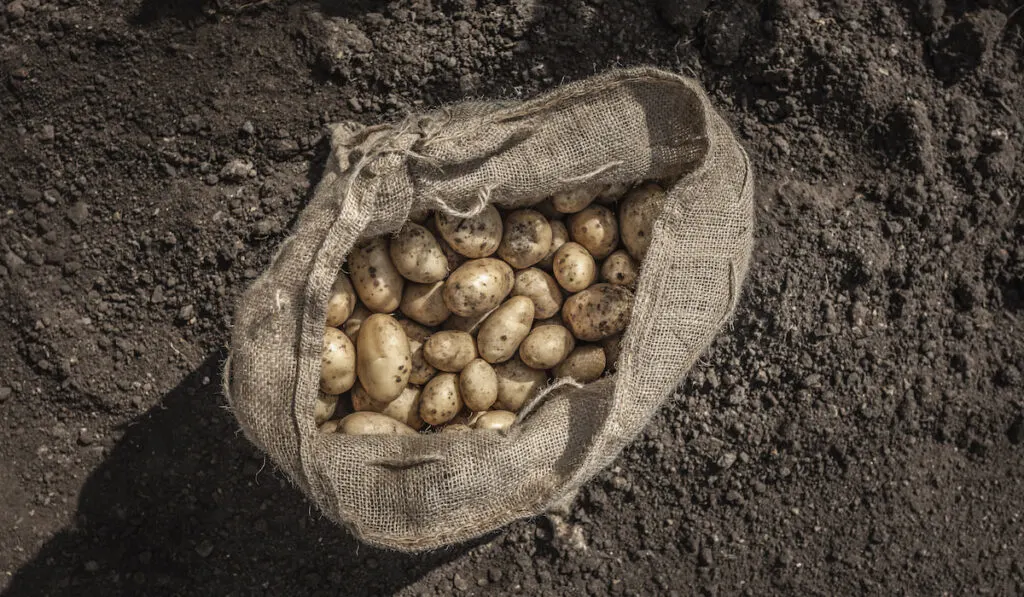
Sunlight
Store your potatoes in a sack or container that is not penetrable by sunlight. You need to keep your potatoes in a dark place to avoid formation of solanine.
Damage
Be mindful about potatoes with black spots, bruises, and cuts. Do not keep any potatoes that show signs of physical damage, and do not feed these potatoes to your pigs.
Openings or spots are places where solanine is initially formed on a potato, making it unsafe for your pigs.
Can Pigs Eat Potato Peels?
Pigs can eat potato peels, or skins, and they actually contain large amounts of vitamins that are good for your pigs.
Just be wary not to feed them any green skin, and don’t forget to cook the skins for easier digestion.
You should not feed your pigs huge quantities of potato peels. Pigs need a balanced diet, which means potatoes and potato peels are not enough to cover their nutritional needs.
Can Pigs Eat Potato Plants?
Potato vines, patches, and plants are extremely dangerous for livestock, more so for pigs since they have a single stomach digestive tract. Just like the green parts of potatoes, the potato plant also contains solanine that can make your pigs extremely sick and possibly die.
If you have potato fields, it is best to securely fence them to prevent livestock from grazing on them. Remember, all of your livestock are at risk, not just your pigs.
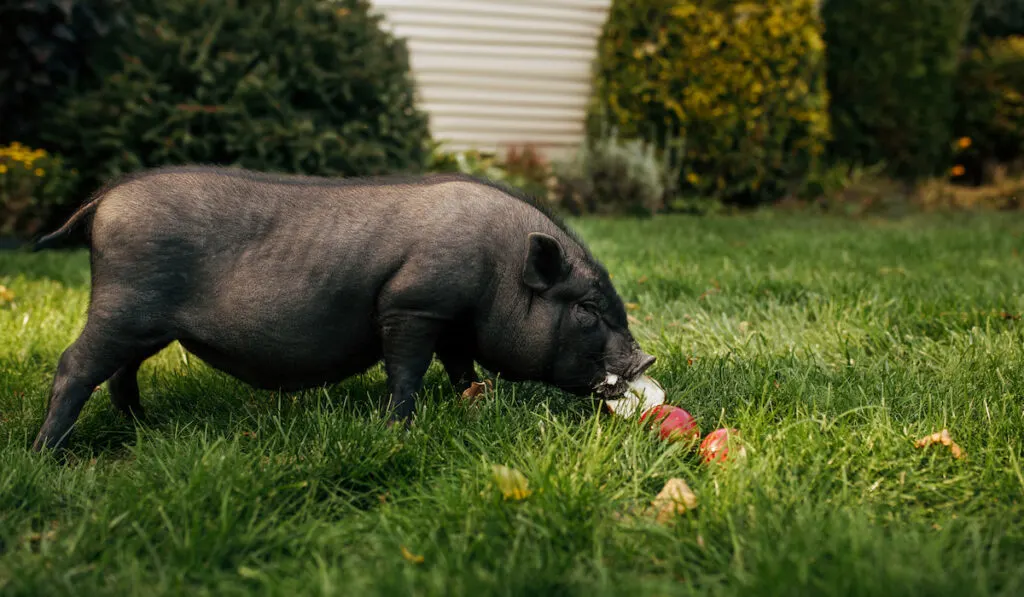
What Other Healthy Foods Do Pigs Love to Eat?
There are a wide variety of healthy fruits and vegetables that you can safely include in your pig’s diet aside from potatoes.
Some of the vegetables pigs love to eat include:
- Cabbage
- Carrots
- Chard
- Cooked Broccoli
- Cucumbers
- Dark Green Lettuce
- Kale
- Pumpkins
- Snow Peas
- Spinach
- Squashes
- Tomatoes
- Yams
- Zucchini
When it comes to fruits, pigs will happily eat a wide variety:
- Apples
- Bananas
- Beets
- Berries
- Grapefruit
- Melons
- Oranges
- Pears
- Pitted Apricots
- Pitted Cherries
- Pitted Peaches
- Grapes
These foods greatly benefit your pig’s overall nutritional needs. Just be careful when feeding them fruits since their fructose, or sugar content, may be too much for your pigs.
Fruits should be used as an occasional treat.
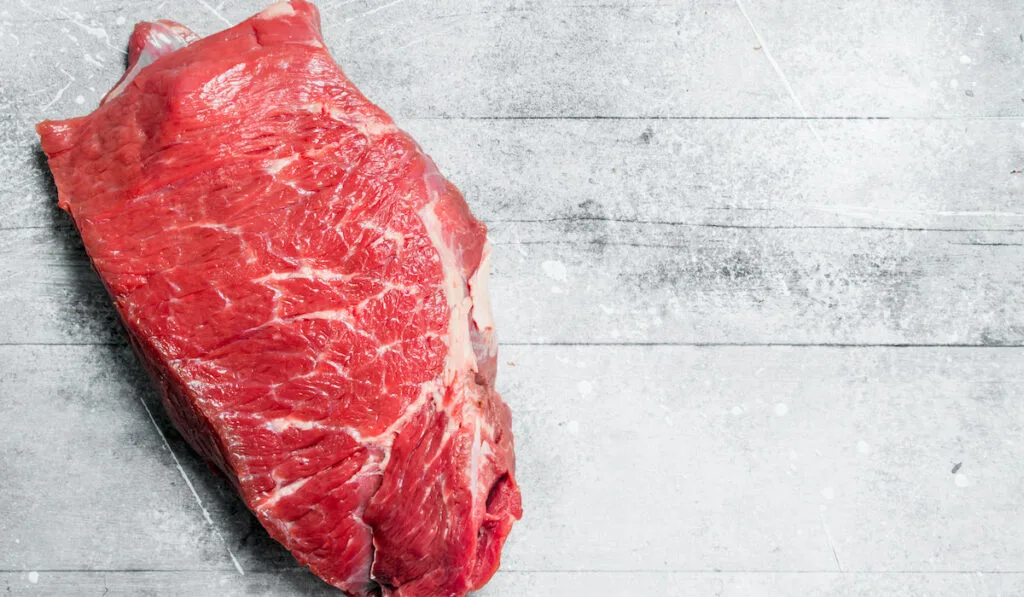
What NOT to Feed Pigs
Pigs may like almost everything you give them, but that doesn’t mean every food is good for their health.
Raw Meat and Eggs
Some common foods that are unsafe for pigs to eat are raw meat and raw eggs.
Raw meats can become the intermediary for your pigs to contract viruses and diseases such as foot and mouth disease.
Feeding pigs raw eggs can hinder their biotin absorption.
Spoiled Produce
Anything moldy, slimy, spoiled, or rotten should not be fed to pigs since these can upset their stomach.
It is a common misconception that it is acceptable to feed pigs garbage. While they might not hesitate to eat it, old foods and trash are not safe to feed pigs.
Alternate Pet Food
You should not feed your pigs any pet food that is meant for dogs, cats, or other animals. Those foods are high in sodium and are not safe for pigs.
Vitamin C
While not a food itself, pigs should not intake large amounts of Vitamin C. Foods that are rich in Vitamin C should be given in moderation since excessive Vitamin C can cause bladder stones.
Final Thoughts
Cooked potatoes are generally good for pigs, provided that they consume the right amount for a healthy and balanced diet.
Be careful to never feed your pigs raw or green potatoes since this can make them quite sick. There are a number of other safe options to feed your pigs as an alternative.
References
- https://petpigworld.com/can-pigs-eat-potatoes/
- https://www.duynie.co.uk/animal-groups/pigs/pig-feed-products/potato-peel/1873
- https://pigspeace.org/main/didyouknow.html
- https://iamcountryside.com/pigs/what-not-to-feed-pigs/
- https://www.healthline.com/nutrition/how-to-store-potatoes
- https://www.homesteadingtoday.com/threads/can-pigs-eat-potato-peelings.465532/
